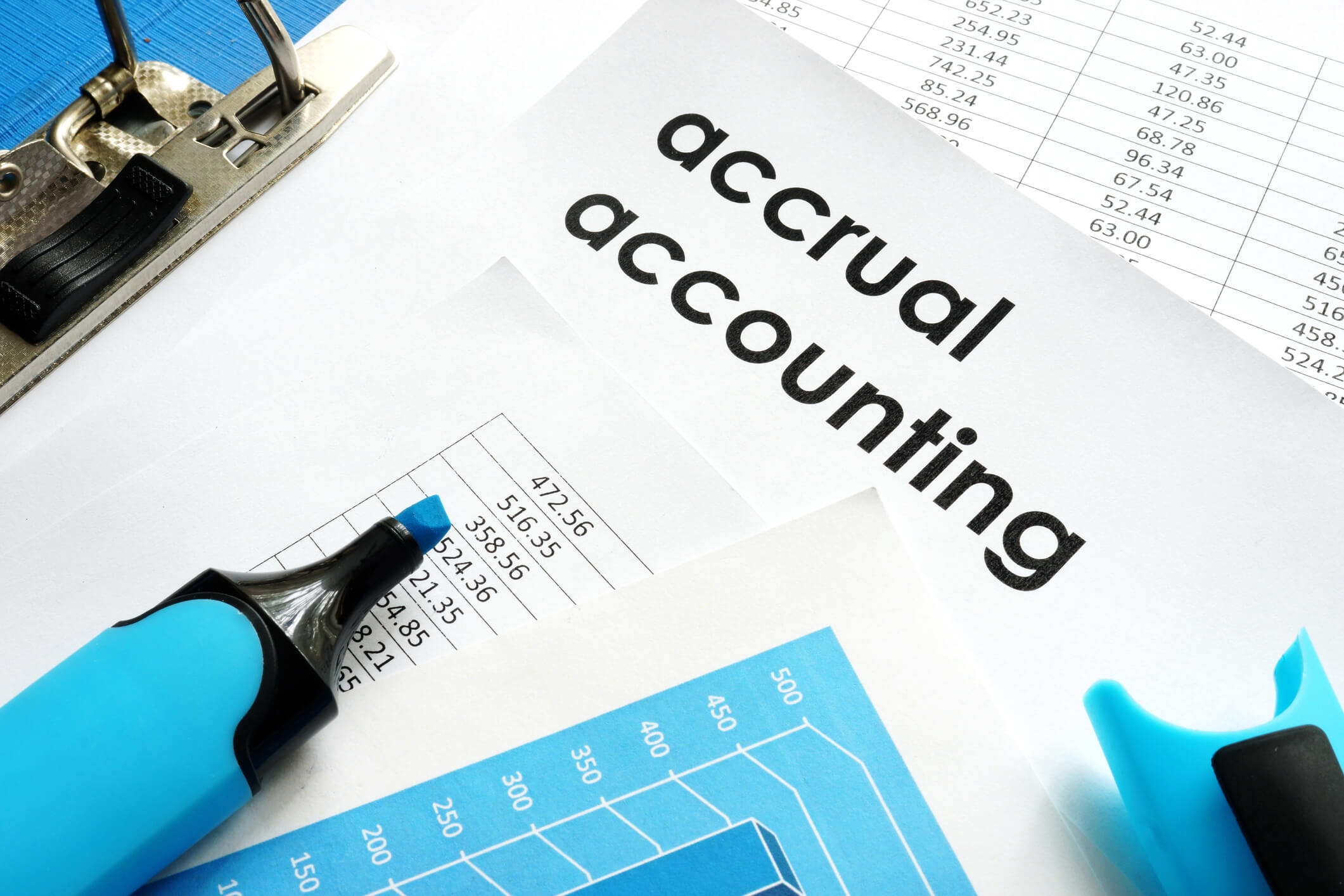The most important method of accounting is accrual. Incomes must be considered at the time they were earned. In the meantime, expenses need to be considered at the time when they were incurred, regardless of the cash flow. Accrual accounting is the basis under which the impact of transactions and other events is recognized when they occur (and not when cash and cash equivalents are received or paid). They are reflected in the accounting entries and in the financial statements in the periods to which they relate. Thus, accrual accounting includes all tools developed by accountants for the application of the compliance rule. The method consists of two main methods:
- Accounting for the accounting of income at the time when they are earned and expenses at the time they are incurred;
- Adjustment of accounts.

The financial statements prepared on an accrual basis inform users. Not only about past transactions related to the payment and receipt of cash but also about the obligation to pay money in the future, as well as on resources equivalent to cash that will be received in the future. Bookkeeping can also be used in keeping the record of financial statements. The specificity of the accrual method is that income to the profit tax base must be included in the period in which they arise from the documents justifying their occurrence, regardless of the actual payment (or transfer of property as it.)
Maintaining Accounting Records
Most companies use the accrual method to maintain accounting records, in which expenses and revenues are recognized immediately after they occur, without taking into account the time of receipt of funds or payment of expenses. On the other hand, some small enterprises and individual entrepreneurs use the cash accounting method. With the cash method, income is recorded only when the money is received, and costs are recognized only after the payment is made. With the cash method, the determination of profit is based on information on receipt of payment and payment of expenses, and the facts of recognition of profit and expenses are not taken into account. Therefore, the cash basis for accounting does not comply with International Financial Reporting Standards.

Financial statements prepared on the accrual basis provide the user with information not only about past transactions but also about future cash obligations and the resources in the form of funds to be received.
The accrual method and the cash method are used to characterize two ways of accounting for income and expenses used in determining the basis for income tax. The accrual method and the cash method differ from each other. As a circle of taxpayers who are entitled to use one or another method of accounting, and conditions that make it possible to use each of the methods.
Cash Basis and Accrual Basis

The modern economy uses loans more than cash. The accrual method and not the cash method shows all aspects of credit. Investors, creditors, and other decision-makers want to have prompt and detailed information about the company’s future cash flows. The accrual principle provides such information in the Cash Flow Statement as soon as these amounts can be determined with enough accuracy. Accounts receivable and accounts payable indicate future cash receipts and disbursements. In other words, the accrual method helps to predict future cash flows, reflecting economic transactions at the time they occur, and not when the money is received or paid. The accrual method determines how income and expenses are allocated by a period. The rules for recognizing income and expenses must also be based on the assumption of the continuity of the company’s activities.
 About Complete Controller® – America’s Bookkeeping Experts Complete Controller is the Nation’s Leader in virtual bookkeeping, providing service to businesses and households alike. Utilizing Complete Controller’s technology, clients gain access to a cloud-hosted desktop where their entire team and tax accountant may access the QuickBooks™️ file, critical financial documents, and back-office tools in an efficient and secure environment. Complete Controller’s team of certified US-based accounting professionals provide bookkeeping, record storage, performance reporting, and controller services including training, cash-flow management, budgeting and forecasting, process and controls advisement, and bill-pay. With flat-rate service plans, Complete Controller is the most cost-effective expert accounting solution for business, family-office, trusts, and households of any size or complexity.
About Complete Controller® – America’s Bookkeeping Experts Complete Controller is the Nation’s Leader in virtual bookkeeping, providing service to businesses and households alike. Utilizing Complete Controller’s technology, clients gain access to a cloud-hosted desktop where their entire team and tax accountant may access the QuickBooks™️ file, critical financial documents, and back-office tools in an efficient and secure environment. Complete Controller’s team of certified US-based accounting professionals provide bookkeeping, record storage, performance reporting, and controller services including training, cash-flow management, budgeting and forecasting, process and controls advisement, and bill-pay. With flat-rate service plans, Complete Controller is the most cost-effective expert accounting solution for business, family-office, trusts, and households of any size or complexity.




